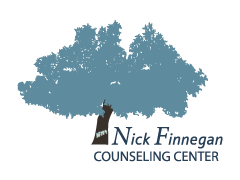Intergenerational Trauma: Lessons Since the Holocaust
It has been 76 years since the brave American soldiers of World War 2 liberated the Auschwitz concentration camp, bearing witness to the pain and suffering of an entire community of people both young and old. As a person of Jewish heritage, writing this article fills me with both awe, pressure to do it justice, and a healthy, stoic awareness that while the atrocities of this Nazi implemented genocide seem far behind us, the very real emotional and psychological trauma inflicted on these survivors continues to live on.
Today, Wednesday, January 27th, 2021, marks the 75th Holocaust Remembrance Day. While time seems to have passed and those of us reading about or watching videos on the horrors of this dark period for the persecuted communities of the time can breathe a sigh of relief at the end, it should not surprise anyone to know that the trauma inflicted during this period still slithers through the offspring of these survivors. What better argument could be made for the value of mental health care than knowing our pains get passed one way or another to our children and their children if allowed to remain without intervention. A majority of the research on intergenerational trauma within families of Holocaust survivors has found an increased sensitivity to cortisol, increased levels of anxiety and depression, and heightened sensitivity to stress related to present danger compared to non-survivor descendants.
History teaches us that the past rarely stays in the past, and how can we expect different when mental health care is only now starting to claw its way out of the shadows of stigma, not to mention the distrust in doctors often associated with survivors of genocide such as the Holocaust. Thankfully, many survivors found a way through their fear to participate in studies to allow us to learn to better serve families impacted by trauma and work to decrease the spread of inflicted pain across generations. No doubt survivors show a fortitude in spirit that has taught us many lessons on bearing witness, developing compassion, and fighting for justice, but for many it has reportedly taken them decades to get to that place. How can we expect a pain that is so immersive and visceral to not continue to flow into future generations without the support to understand trauma’s impact and where it might be showing up in your lives. The impact can be seen in second generation refugees and third generation immigrants. As a family therapist, I feel that my work in the mental health field and efforts to increase access and understanding of mental health needs is how I can best honor the legacy of the Holocaust and continue to encourage compassion, understanding, and support in the community at large. Mental health care really does matter!
By Tracy Lehman, MA, LMFT
Outreach Counselor
